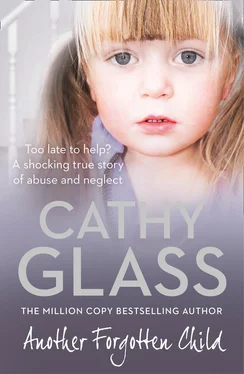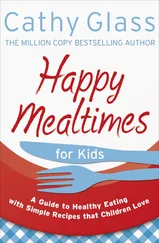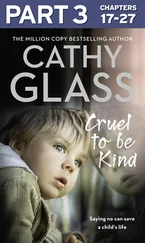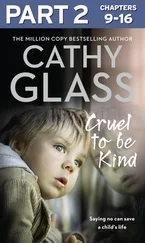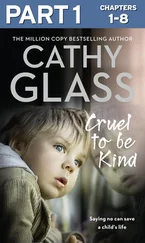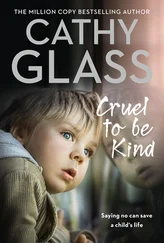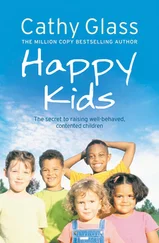‘It was worth all the pain and suffering, then?’ I said lightly, with a smile.
‘No it wasn’t,’ Aimee retorted. ‘And you ain’t doing it again!’
We’ll see about that, I thought, but didn’t say. I’d already discovered that Aimee automatically rejected or contradicted most of what I said – presumably as a result of there being no boundaries at home – so I let it go, although Aimee would be doing as she was told while she was with me.
‘Look at you! Don’t you look nice!’ A lady said, coming through the double doors a few minutes later. ‘I wouldn’t have recognized you, Aimee.’
I thought she might, as Aimee was still wearing the clothes she’d arrived in, but Aimee smiled, pleased by the second compliment within a few minutes of arriving.
‘Lynn Burrows, designated teacher,’ the woman said as I stood. We shook hands. ‘Pleased to meet you, Cathy.’
‘And you.’
‘Let’s go to my office for a chat. I’m also the school’s SENCO, so they give me an office of my own,’ she added with a small laugh. The SENCO (Special Educational Needs Coordinator) helps children with special needs and also often assumes the role of designated teacher.
‘Did you sleep well?’ Lynn now asked Aimee as we made our way down the corridor.
Aimee didn’t answer; she was more interested in the playground, which we could see through the windows on the right of the corridor. ‘Mrs Burrows, can I go in the playground with the other kids?’ she said, pausing at one of the windows. ‘Please, I haven’t been there before.’
‘I don’t see why not,’ Lynn said as we drew to a halt. Then to me: ‘It’ll give us a chance to talk in private. I’ll just ask the playground supervisor to keep an eye on Aimee.’
Aimee and Lynn went out of one of the doors that led into the playground while I waited in the corridor. The building was old, I guessed built in the 1950s, but my first impression was that it was a friendly and caring school. I liked Lynn, she was a warm and bubbly person, but I thought Aimee must have been mistaken when she’d said she hadn’t been in the playground before, because, even allowing for her poor school attendance, she would have gone into the playground at break and lunchtime.
Lynn returned with a smile. ‘She’s happy enough and she looks so much better already. Amazing what a good wash can do.’
I smiled. ‘I need to buy her a new school uniform,’ I said, as I followed Lynn up a short flight of stairs and into her office.
‘Aimee will love that. She’s never had a school uniform before. We’ll sort one out when we’ve finished talking. You know why Aimee was so keen to go in the playground just now?’ Lynn said, as we settled in her small but comfortable office on the first floor.
‘No.’
‘It’s the first time she has had the opportunity of playing in the playground before the start of school, because she’s never arrived on time before.’
I looked at Lynn amazed. ‘Are you saying that in four years of schooling she never once arrived on time?’
‘That’s right. Aimee’s attendance averaged about twenty per cent each year, and on the days she was in school she never arrived until the afternoon.’
‘Good grief!’ I said. ‘That’s probably the worst school attendance I’ve ever heard of for a young child. And it explains why Aimee was puzzled that the children were in the playground first thing. As we came in she remarked that the kids should be in their classrooms, not the playground.’
‘That’s because they were always in school doing their lessons when she arrived before.’
‘But how did Aimee’s parents get away with not sending her to school and always arriving late?’ I asked.
‘I wish I knew,’ Lynn said with a sigh. ‘We kept reporting it to the social services, together with all our other concerns: Aimee’s poor hygiene and head lice, the rags she wore for clothes, the bruises we saw and also her bad behaviour, but nothing seemed to happen. A social worker must have visited the mother’s flat, for we had some meetings here. But we never saw the same social worker twice and Aimee’s mother, Susan, is very manipulative. She’s had plenty of practice with all her older children being in care. She always had lots of excuses as to why Aimee wasn’t in school, was always filthy dirty and didn’t have a school uniform. Have you met Susan yet?’
‘No. But I will tonight when I take Aimee to contact.’
‘Be warned: she can be very aggressive. I guess it’s all the drink and drugs. I’ve had her escorted off the school premises many times. Whenever I phoned the social services and raised my concerns she came in here looking for trouble. I have the feeling the social workers are frightened of her. She often has that nasty Rottweiler with her. God knows how much that dog must cost to feed!’
‘I don’t understand why Aimee wasn’t brought into care sooner,’ I said. ‘The current social worker can’t understand why she was left so long at home either.’
Lynn nodded. ‘I blame myself for not doing more, although I’m not sure what else I could have done. When Aimee first came to the school and was in the nursery we tried to help Susan. We put in a lot of support – much of it with school funding – but it achieved nothing. She’s followed the same path in the neglect of Aimee as she did with the other children. I’ve sat in case conferences and it’s history repeating itself. It’s so sad.’
‘I’m sure you did all you could,’ I said. ‘At least Aimee is in care now.’
‘Thank goodness.’ Lynn sighed. ‘Now, let me write down your contact details before I forget.’
Taking a pen and paper from her desk she wrote my name and then I gave her my address, telephone numbers – landline and mobile – and email address, all of which the social services should give the school but hardly ever do. ‘You appreciate my details are confidential,’ I said. ‘Susan doesn’t know where Aimee is staying.’
‘Good. Less chance of her causing trouble,’ Lynn said.
When she’d finished writing I said: ‘Last night when I helped Aimee with her bath I noticed she had a lot of small bruises all over her, some of them quite new.’
Lynn nodded. ‘We often saw bruises on Aimee and always reported them to the social services. Her mother said she was accident prone. Aimee was in school so little we couldn’t monitor her properly, and she was never in school on the days she had PE – a classic sign a child may have something to hide and doesn’t want to undress. When I asked Aimee how she got the bruises she said she fell over. I doubt it; they didn’t appear to be in the right places for falling over.’
‘No,’ I agreed. ‘I intend reporting what I’ve seen to the social worker when I speak to her later. I guess with so little schooling Aimee is a long way behind with her learning? Yesterday evening she struggled to do a simple puzzle that was suitable for a pre-school child.’
‘Aimee is a long, long way behind in all her learning,’ Lynn confirmed, shaking her head sadly. ‘She can just about write her first name but that’s the only word she can write; she can only count to ten, doesn’t know her alphabet and has a sight vocabulary of three words.’
I gasped. ‘She can only read three words at the age of eight?’
‘Her mother says Aimee has learning difficulties but I don’t think so. I’m sure it’s a combination of virtually no schooling and not being able to concentrate when she has been in school. I’ve found before when children have difficult home lives that they spend all their time worrying about what’s going on at home rather than concentrating on their lessons: if Mum is staying off the drink or drugs, if she’s getting a beating from Dad, if they are going to receive another beating when they get home or if there’s any food in the house. I’m sure now Aimee’s in care she’ll achieve great things.’
Читать дальше
